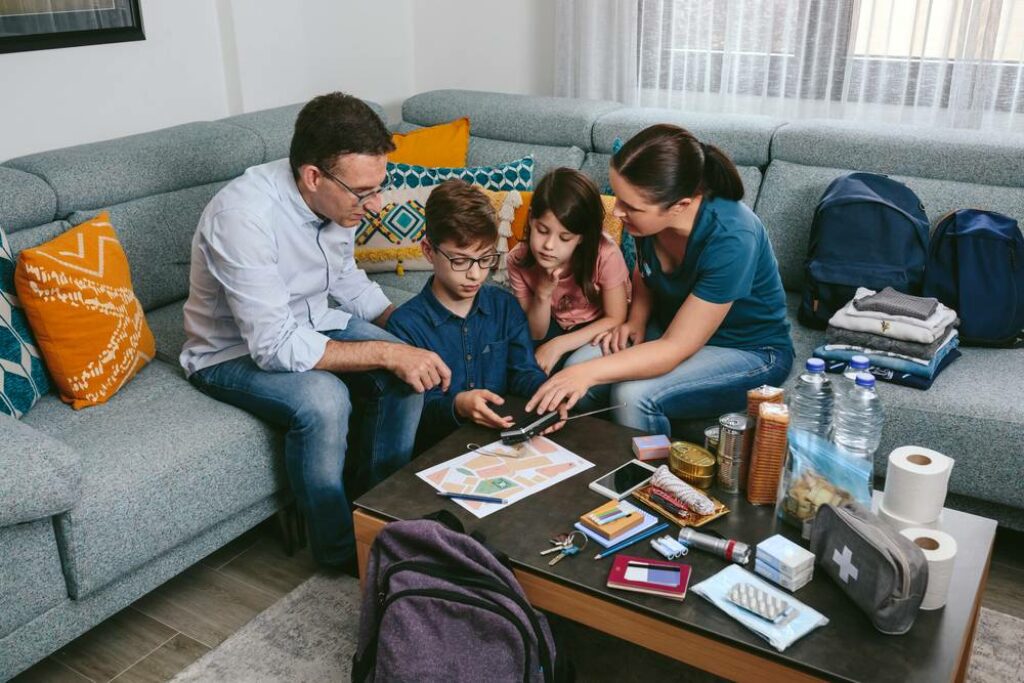
Emergency Preparedness
Most people buy insurance to protect themselves, their family and their possessions against harm or loss – “just in case”. Insurance alone, however, is not enough to truly protect your family and property. One must also be proactive by preparing in advance.
Related Topics (Sponsored Ads):
Emergency preparedness is a crucial aspect of ensuring the safety and well-being of your family and property. From natural disasters to unforeseen accidents, being prepared for emergencies can make a significant difference in how you and your loved ones cope with and recover from challenging situations. This article will explore the various aspects of emergency preparedness for the home, including an overview of possible emergencies, the essential items to have or do, and valuable tips on how to be and stay prepared.

Overview of Possible Emergencies
Before delving into the specifics of emergency preparedness, it is essential to understand the range of potential emergencies that could impact your home and community. Natural disasters such as earthquakes, floods, wildfires, hurricanes, and tornadoes are common occurrences in many regions. Additionally, emergencies can also arise from accidents, power outages, and even public health crises such as pandemics. By recognizing these potential threats, you can better tailor your preparedness efforts to mitigate the impact of such events.
Emergency Supplies Kit
One of the most critical aspects of emergency preparedness is having an emergency supplies kit readily available in your home. This kit should include essential items such as non-perishable food, water, a first-aid kit, flashlight, batteries, a multi-tool, personal hygiene items, and any necessary medications. It is advisable to periodically review and update the contents of your emergency supplies kit to ensure that everything remains in good condition and meets the needs of your family.
Communication Plan
Developing a comprehensive communication plan with your family members is crucial in emergency situations. Identify a designated meeting place in case of evacuation and establish a means of communication that does not rely solely on mobile phones, as network outages are common during emergencies. Having a plan in place ensures that everyone knows what to do and where to go, reducing confusion and anxiety during a crisis.
Home Safety Measures
Regularly maintaining your home’s safety features is essential for emergency preparedness. This includes installing smoke detectors on every level of your home, testing them monthly, and replacing the batteries annually. Additionally, it is crucial to have a fire extinguisher readily available and to know how to use it effectively. Ensuring that your home is equipped with functioning carbon monoxide detectors is also vital for preventing potential hazards.
Emergency Contact Information
Compile a list of emergency contact information, including local emergency services, medical facilities, and important contacts such as family members and neighbors. Keep this list in a readily accessible location and ensure that all family members are aware of its whereabouts. In the event of an emergency, having this information readily available can save valuable time and ensure prompt access to necessary assistance.
Financial Preparedness
In addition to physical preparedness, it is essential to consider financial preparedness for emergencies. This includes maintaining emergency savings to cover unexpected expenses, ensuring that important documents such as insurance policies, identification, and financial records are easily accessible, and having a plan for accessing funds in case of banking disruptions.
Tips on How to Be and Stay Prepared
Stay Informed: Regularly staying informed about potential hazards in your area is essential for proactive emergency preparedness. Utilize reliable sources of information such as local news, emergency management agencies, and weather alerts to stay abreast of any potential threats. Understanding the specific risks in your region enables you to tailor your preparedness efforts accordingly.
Practice Emergency Drills: Conducting regular emergency drills with your family members helps ensure that everyone knows what to do in various emergency scenarios. Practice evacuation routes, communication procedures, and the proper use of emergency equipment. By rehearsing these procedures, you can instill a sense of preparedness and readiness in your household.
Community Engagement: Engaging with your local community and neighborhood can significantly enhance emergency preparedness. Establishing a network of support with neighbors, participating in community emergency response programs, and staying informed about local resources and shelters can provide valuable assistance in times of need.
Special Considerations: Consider any special needs or considerations that may apply to your family members, such as infants, elderly individuals, or individuals with disabilities. Tailoring your emergency preparedness plans to accommodate these specific needs ensures that everyone in your household is adequately cared for during an emergency.
Continual Review and Updates: Emergency preparedness is an ongoing process that requires continual review and updates. Regularly assess the contents of your emergency supplies kit, review and update your communication plan, and stay informed about changes in local emergency procedures. By remaining proactive in your preparedness efforts, you can adapt to evolving circumstances and maintain a high level of readiness.
Conclusion
Emergency preparedness for the home is a multifaceted endeavor that requires careful consideration and proactive planning. By understanding the potential emergencies that could impact your home, ensuring the availability of essential items and plans, and following valuable tips for staying prepared, you can significantly enhance your household’s resilience in the face of adversity. Prioritizing emergency preparedness not only provides peace of mind but also plays a crucial role in safeguarding the safety and well-being of your family and property.




